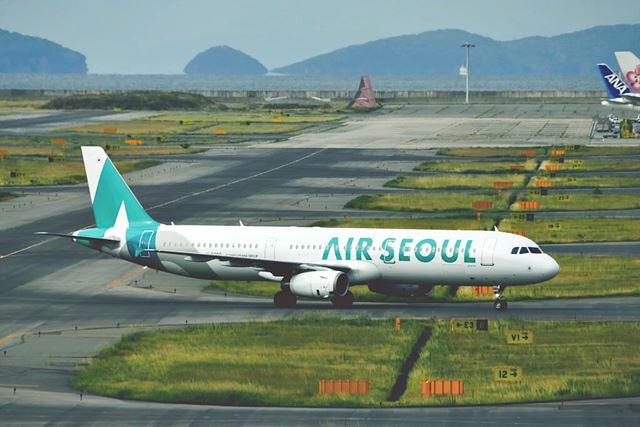
Seoul, South Korea – As South Korea braces for a surge in air travel during the upcoming Lunar New Year holiday, a recent report has revealed that nearly one in five domestic and international flights experienced delays in 2024. Particularly concerning is the performance of Air Seoul, whose international flights suffered a staggering 46.6% delay rate, according to data obtained by Rep. Ahn Tae-jun from the Ministry of Land, Infrastructure and Transport.
The data, covering the past five years, shows that Air Seoul's international operations were marred by a multitude of issues, with connection problems accounting for the largest portion of delays at 2670 instances. Airport and immigration procedures, as well as air traffic flow, were also cited as significant contributing factors. Even Air Seoul's domestic flights were not immune to delays, with a 31.0% delay rate.
Other low-cost carriers like Eastar Jet, Jin Air, T'way Air, and Jeju Air also reported high delay rates, with over 30% of their flights experiencing disruptions. Jeju Air, which was involved in a fatal accident at Muan Airport last year, saw a 29.7% delay rate for its international flights and 28.7% for domestic operations.
In contrast, major carriers such as Korean Air and Asiana Airlines had slightly lower delay rates, with domestic and international flights experiencing delays around 17% and 28-29%, respectively. Air Busan and Aero K were the most punctual among the major carriers. Foreign airlines operating in South Korea had an average delay rate of 24.9%.
The Ministry of Land, Infrastructure and Transport attributed the increased delay rates in 2023 and 2024 to a change in the criteria for classifying flight delays. Previously, a delay was defined as a departure or arrival that was 30 minutes or more behind schedule for domestic flights and 60 minutes or more for international flights. However, starting from January 1, 2023, the threshold was lowered to 15 minutes for both domestic and international flights. Additionally, the number of delay categories was expanded from six to nine to provide a more granular analysis of the causes.
While the ministry acknowledged the impact of the revised criteria, the data also revealed a significant increase in the absolute number of delayed flights, even when comparing years after the change. For instance, the number of delayed flights due to connection issues for Jeju Air's domestic flights jumped from around 3-4% in 2020-2022 to over 25% in 2023 and 2024.
Rep. Ahn Tae-jun called for stricter government oversight of airlines with high delay rates, urging the Ministry of Land, Infrastructure and Transport to conduct thorough investigations and implement measures to improve on-time performance.
[Copyright (c) Global Economic Times. All Rights Reserved.]



























